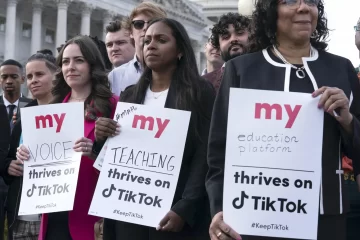In 2016, US intelligence agencies concluded that the Russian state attempted to tip the balance of the US presidential election in favour of the Trump campaign. Russian authorities are said to have employed a series of cyber-attacks and planted fake news stories on social media to help smear the Clinton campaign and elect Trump to the White House. Whilst Trump has remained adamant in contradicting his own intelligence services regarding Russian interference, attention has turned to the question of whether there was direct collusion between the Trump campaign and Russia during the 2016 presidential election. Throughout such controversy, however, Americans – and indeed commentators abroad – seem to have forgotten that interfering in foreign elections is something of an American hobby too. It is the unspoken hypocrisy of one of the defining aspects of the present American political climate.
Throughout history, and under successive Democrat and Republican presidencies alike, US administrations have frequently intervened in the internal political affairs of foreign nations. They have also frequently colluded with individuals abroad whom they consider to be advancing political aims favourable to the US. Actions have been covert, overt and proxy. And it goes far beyond spreading a bit of fake news on social media, highly detestable nonetheless. A study by the academic Dov Levin found that between 1946-2000, there were 81 covert and/or overt attempts by the US authorities to influence foreign elections. Interference is nothing more than an old trick of the American political establishment itself. It should therefore be of no surprise that it took so little time for interference in their own elections to be spotted.
Throughout the Cold War, the US was behind the overthrow of a plethora of governments – from that of Iran to that of Guatemala – whose policies it considered contrary to those of US aims. In 2000, it helped ensure Slobodan Milosevic was defeated in the Serbian elections. The US was – in all but name – one of, if not the, major actor in that election through its provision of political advisers and millions of campaign posters. Collusion? Interference? A reflection in the mirror to Russian activities in the US? The double standards are glaring.

Foreign interventions are a risk for all of us
As Samuel Huntington argued in his seminal work, The Clash of Civilizations, we live in a world characterized by sharply competing aims and values. Western commitments to individualism, democracy and human rights contrast starkly with the commitments of Asian Confucianism to hierarchy, community and respect for authority. In Islam, the nation-state itself is considered illegitimate as a concept. Interferences in the internal affairs of other states frequently fail for this reason. Supposedly superior values cannot simply be imposed upon other states as the current turmoil in the Middle East so tragically demonstrates. It is unfathomable to think that the West can impose a democratic peace in the Middle East or elsewhere when the values of such cultures are so contradictory to its own. What is more, foreign interferences are only likely to increase hatred towards the culture of the interfering nation – American or otherwise – and exacerbate differences in values and beliefs.
The international order faces a smorgasbord of challenging dynamics which go far beyond interference in the internal affairs of other nations. Arbitrary interferences in the internal affairs of foreign nations are not likely to help any sort of order in international – or indeed domestic – affairs emerge.
Addressing the question of the universal community of mankind
In the wake of the Rwandan genocide and the Srebrenica massacre of the 1990s, there were, understandably, calls for curbs on the principle of state sovereignty. This culminated in the Responsibility to Protect (R2P) – the idea that human rights trump state rights – being endorsed by the UN in 2005. This is a very valid point. I subscribe to the view that there are objective ‘evils’. Murdering innocent civilians is objectively ‘evil’, as is rape, torture and so many other actions. Hence, I do not find those who may oppose R2P due to the view that there are relative standards of morality convincing. Along the line of this thinking, actions such as genocide and mass rape can be legitimized. But interfering in the affairs of other nations for humanitarian reasons should always be distinguished from attempting to impose regime change, by electoral interference or other means. Indeed, the actions of the US-led coalition in entering Libya in 2011 under the banner of R2P but then deciding to topple its leadership removed any credibility of the mission. It is also another glaring example of US double standards.
American anger is hypocritical but justified
Whilst hypocritical, American anger at Russian interference in its own elections is justified. Robert Mueller’s investigation should and must continue unhindered. As I argued above, nations interfering in the internal affairs of other nations and colluding with foreign politicians is dangerous to all of us. Acknowledging the hypocritical (yet necessary) Trump-Russia investigation should stimulate thought about the dangers of US and Western interference in the internal affairs of foreign nations. The motivation for imposing supposedly superior values upon other states must always be questioned. Hypocrisies and double standards must be acknowledged.
A final word
The arguments of this article do not sympathise with the view that Russia should be considered on an equal moral standing with the US. It is not (for reasons that I will not go into here). Hypocrisies such as that addressed in this article do not reduce the merits of many of the principles from which American political culture finds its source. At present such merits are struggling for their survival. Acknowledging the hypocrisies of American political culture is just one way of ensuring its merit worthy features do not cease to exist.


